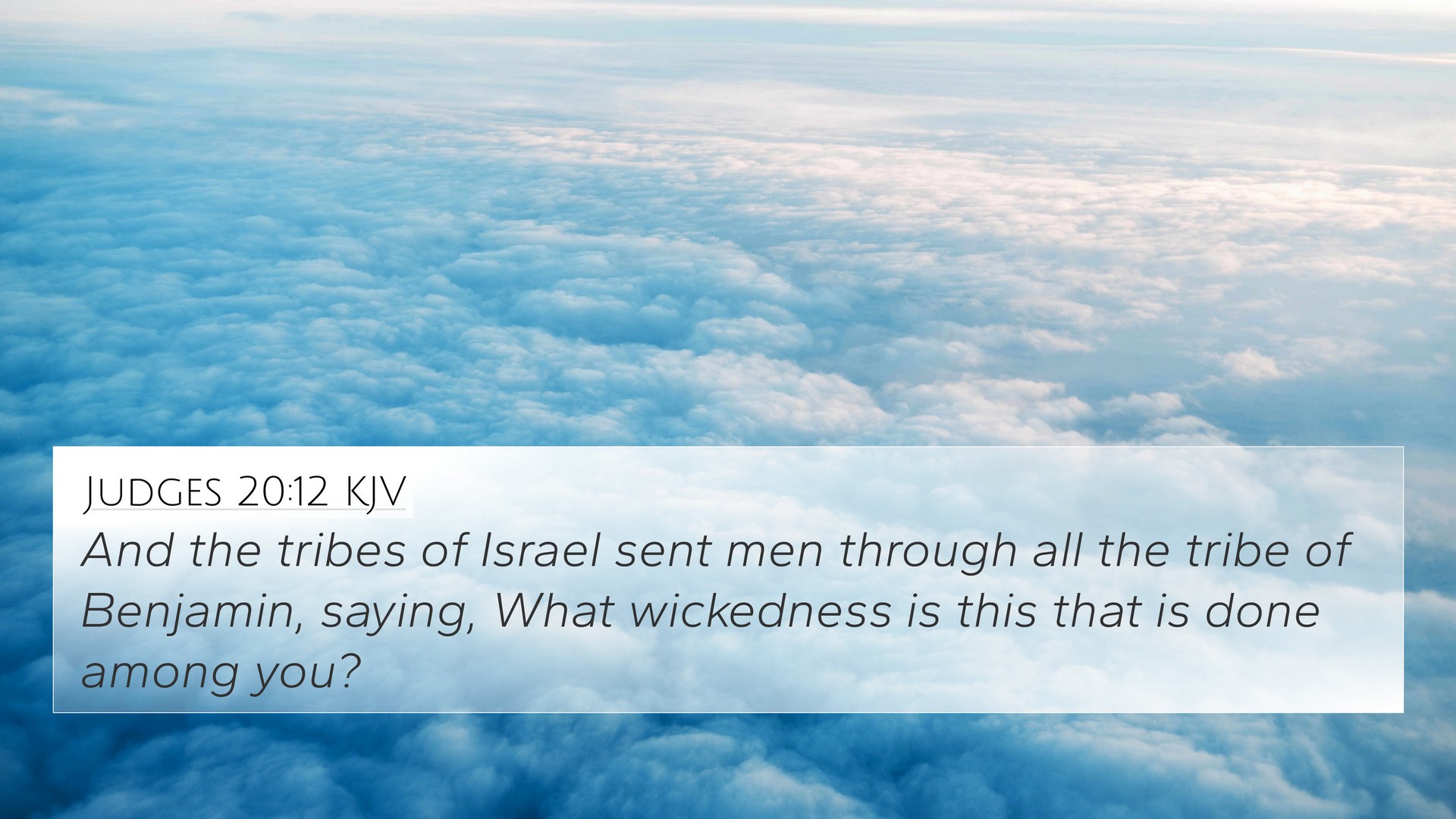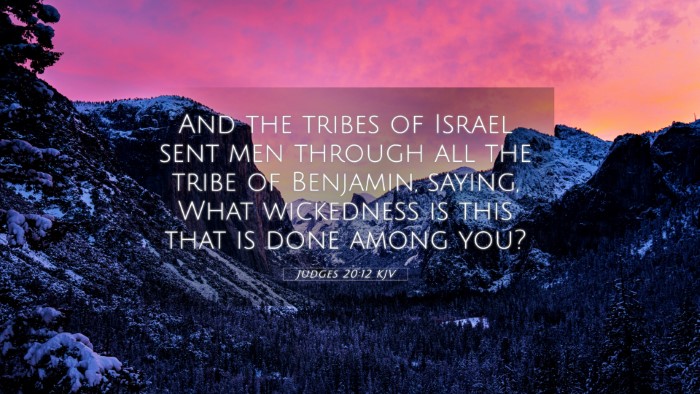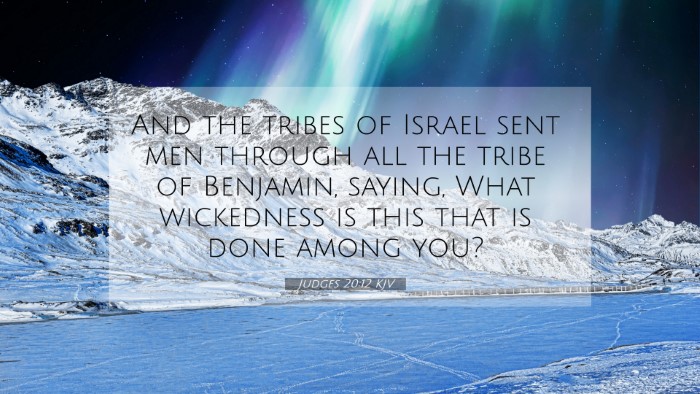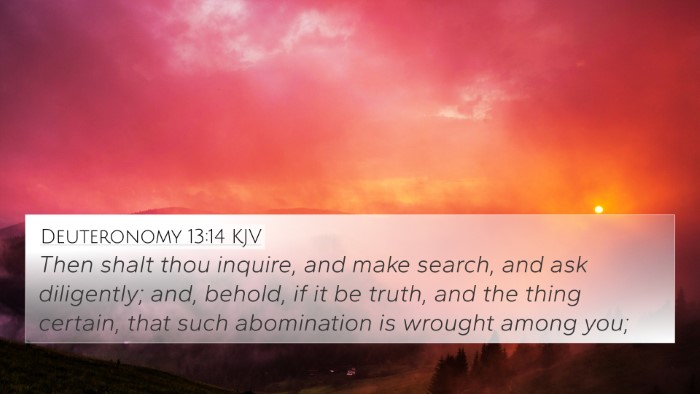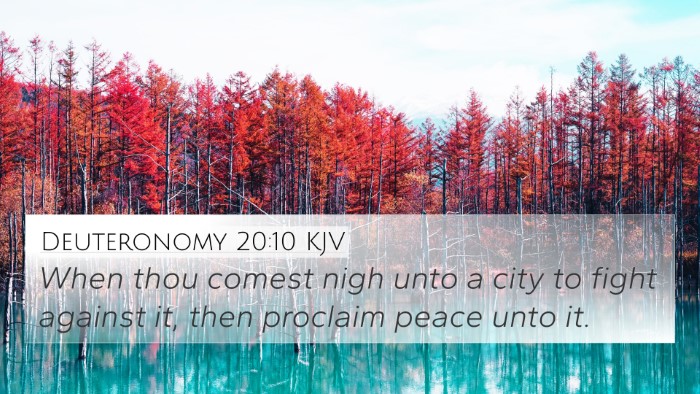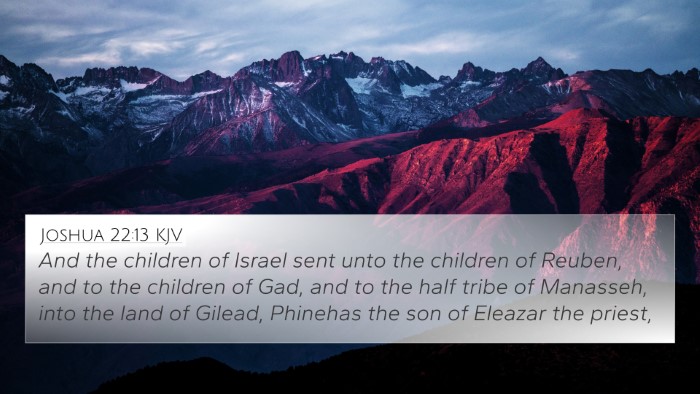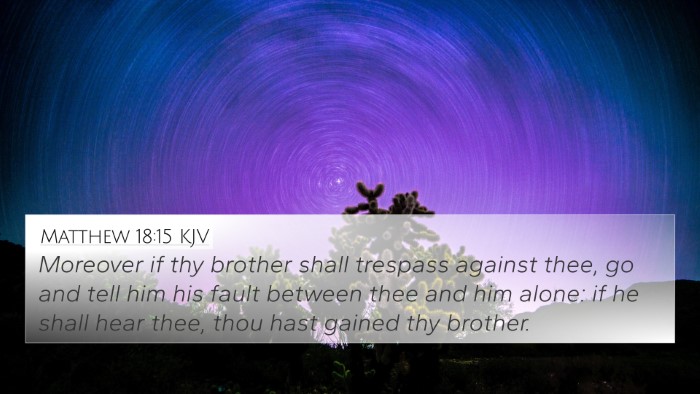Judges 20:12 presents a crucial moment in the history of Israel, wherein we find the tribes of Israel coming together in response to an abomination that had occurred in the city of Gibeah. The context of this verse indicates a serious engagement with moral failure within the nation, leading to a call for justice and retribution against the perpetrator.
In this passage, the tribes of Israel inquire of one another about the actions taken to address the heinous crime committed by the men of Gibeah. It demonstrates the communal responsibility in dealing with sin and injustice, emphasizing that in Israelite society, accountability was not solely an individual concern but a collective one.
The implications of this inquiry reflect a deeper theological understanding of justice and righteousness within the community of faith. The congregation's unity in confronting sin signifies a powerful model of church discipline and collective moral integrity.
Insights from Public Domain Commentaries:
-
Matthew Henry: Henry emphasizes the communal approach of the Israelites in addressing the sin of Gibeah. He notes that their inquiry reveals the importance of unity and collective action in pursuing justice, illustrating that God's people should not tolerate wickedness in their midst.
-
Albert Barnes: Barnes describes the gravity of the situation, highlighting that the wickedness was so bold that it demanded immediate and united action from the tribes. He points out how this call for justice reflects the seriousness of sin and its impact on the community.
-
Adam Clarke: Clarke provides insight into the cultural implications of the response from the tribes of Israel. He discusses the social structure of Israel during that time, shedding light on how such injustices were to be dealt with according to the Law, which framed their understanding of communal morality.
This verse asks us to consider the nature of sin within our communities and the collective responsibility of believers to seek justice, fostering an environment that upholds righteousness. The notion of bringing the matter before all the tribes reflects a desire for transparency and accountability, which serves as a model for modern-day church governance and moral decision-making.
As we explore Bible verse connections, several verses resonate with the themes presented in Judges 20:12. Below are some significant cross-references:
- Deuteronomy 13:12-15: Instructions for eradicating wickedness from Israel.
- Leviticus 24:14: Dealing with blasphemy among the people.
- 1 Corinthians 5:1-13: Paul's direction on church discipline concerning immorality.
- Galatians 6:1: The call to restore someone caught in sin by the community.
- Matthew 18:15-20: Jesus’ teaching about addressing sin in the community.
- James 5:16: The importance of confession and prayer amongst believers.
- Romans 12:9-21: Instructions on behaving honorably within the community.
Through this comparative Bible verse analysis, we understand that the call for accountability in Judges 20:12 resonates through both the Old and New Testaments, supporting the notion that maintaining holiness in community is of utmost importance to God’s people.
In exploring these connections between Bible verses, we recognize that when confronting sin and injustice, the pastoral role is to guide the congregation towards righteousness, demonstrating love while upholding truth.
By analyzing Bible verses that relate to each other, we not only understand the context of Judges 20:12 but also gain a broader perspective on how God's will for His people is consistently communicated throughout Scripture. This inter-Biblical dialogue is essential for comprehensive understanding and effective application in our own lives.
